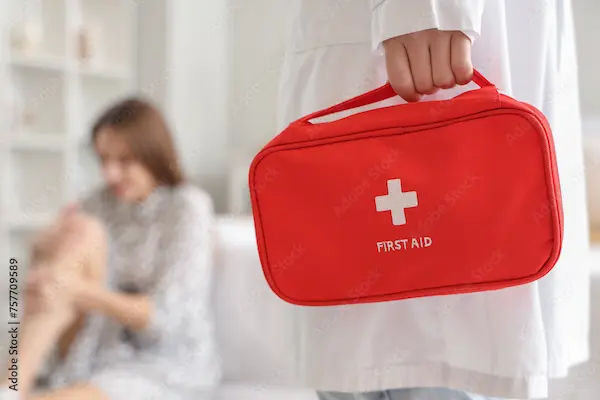Understanding Multiple Organ Dysfunction Syndrome
Learn about Multiple Organ Dysfunction Syndrome (MODS), a life-threatening condition where two or more organ systems fail. Understand its causes, symptoms, and treatment options.

Written by Dr. Mohammed Kamran
Reviewed by Dr. Dhankecha Mayank Dineshbhai MBBS
Last updated on 13th Jan, 2026

Multiple Organ Dysfunction Syndrome: A Critical Health Guide
When the body faces an extreme threat, its defense mechanisms can sometimes spiral out of control, leading to a catastrophic chain reaction known as Multiple Organ Dysfunction Syndrome (MODS). This is not a disease itself but a severe, life-threatening complication of an existing illness or injury where two or more organ systems begin to fail. Understanding MODS is crucial for anyone supporting a loved one in intensive care or seeking to comprehend the gravity of critical illnesses like severe sepsis. This guide breaks down the complex nature of MODS, its causes, symptoms, and the challenging road to treatment, empowering you with knowledge during a difficult time.
What is Multiple Organ Dysfunction Syndrome (MODS)?
Multiple Organ Dysfunction Syndrome is a critical condition characterized by the progressive failure of two or more organ systems in a severely ill patient. It represents the body's ultimate loss of the ability to maintain homeostasis—its internal stability—after a devastating insult. Think of it not as a single event, but as a cascading process where the failure of one organ places immense strain on others, creating a domino effect that can be incredibly difficult to stop.
The Domino Effect in the Body
- The "domino effect" is the perfect analogy for MODS. For instance, if a severe lung infection (like pneumonia) leads to acute respiratory distress syndrome (ARDS), the lungs can no longer oxygenate the blood effectively. This oxygen deprivation stresses the heart, which must work harder. The poorly oxygenated blood and increased cardiac strain can then injure the kidneys, leading to acute kidney injury. As the kidneys fail, toxins build up in the blood, further poisoning other organs like the liver and brain. This vicious cycle is the hallmark of this critical syndrome.
Consult a General Physician for the best advice
Primary vs. Secondary MODS: Knowing the Difference
Doctors often categorize MODS into two types:
- Primary MODS: This is a direct result of a well-defined injury or insult to an organ. For example, a blunt force trauma directly damaging the liver and kidneys would be considered primary MODS.
- Secondary MODS: This is the more common form and occurs as a consequence of the body's overarching inflammatory response to an injury or infection. The organs fail not from the direct injury itself, but from the body's own overwhelming and dysregulated immune response. Sepsis is the most classic trigger for secondary MODS.
What Causes MODS? The Common Triggers
MODS don't occur in a vacuum. It is always precipitated by a significant underlying health crisis that triggers a massive systemic inflammation. The leading causes of multiple organ failure include:
Sepsis: The Leading Cause of Organ Failure
- Overwhelming infection leading to sepsis is, by far, the most common pathway to MODS. When an infection (e.g., pneumonia, urinary tract infection, peritonitis) is not controlled, the body's immune response can become destructive, damaging its own tissues and organs while trying to fight the invader. This dysregulated response is the primary driver of organ dysfunction in these cases.
Major Trauma and Burns
- Severe physical trauma—such as from a car accident, a fall from a great height, or extensive burns—can cause significant tissue damage and blood loss (hypovolemic shock). The body's response to this massive injury involves widespread inflammation and shock, which can rapidly lead to organ failure, even if the initial injury didn't directly hit the organs that are failing.
Other Precipitating Factors
Other conditions that can precipitate MODS include:
- Severe pancreatitis
- Prolonged hypotension (very low blood pressure) from any cause
- Complications from major surgery
- Massive blood transfusions
- Drug overdose
If you or a loved one has experienced a major trauma or shows signs of a severe infection (high fever, confusion, extreme pain), it is a medical emergency. Seeking immediate care from a facility like an emergency department is critical to prevent the onset of MODS. For nonemergent but concerning symptoms following an illness, consulting a doctor online with Apollo24|7 for further evaluation can provide timely guidance.
Recognizing the Signs: Symptoms of Organ Failure
The symptoms of MODS are varied and depend on which organs are affected. They often develop and worsen over hours or days in an ICU setting.
Respiratory System Failure (Lungs)
- Symptoms: Extreme shortness of breath, rapid breathing, low blood oxygen levels (hypoxia), requiring mechanical ventilation.
- Key Term: Acute Respiratory Distress Syndrome (ARDS).
Cardiovascular System Failure (Heart & Blood Vessels)
- Symptoms: Dangerously low blood pressure that doesn't respond to fluids (septic shock), abnormal heart rate, poor circulation (cold, clammy skin).
Renal System Failure (Kidneys)
- Symptoms: Drastically reduced or no urine output, buildup of waste products (like creatinine) in the blood, fluid retention causing swelling.
- Key Term: Acute Kidney Injury (AKI). Treatment often requires temporary dialysis.
Hepatic System Failure (Liver)
- Symptoms: Jaundice (yellowing of the skin and eyes), confusion (due to toxin buildup), easy bruising or bleeding, elevated liver enzymes in blood tests.
Apollo24|7 offers convenient home collection for tests like liver function tests (LFTs) to monitor liver health during recovery from illness.
Neurological Failure (Brain)
- Symptoms: Confusion, agitation, drowsiness, coma (often termed septic encephalopathy).
How is MODS Diagnosed?
Diagnosis is clinical, based on the patient's condition and confirmed with a battery of tests. There is no single test for MODS.
The Role of the SOFA Score
- Doctors use the Sequential Organ Failure Assessment (SOFA) score to track the status of six organ systems (respiratory, coagulation, liver, cardiovascular, neurological, and renal). A higher score indicates greater organ dysfunction, and an increasing SOFA score over time is a key diagnostic tool for MODS.
Essential Medical Tests and Monitoring
- Blood Tests: Complete blood count (CBC), lactate levels (indicator of shock), metabolic panels to check kidney and liver function, coagulation profiles, and blood cultures to detect infection.
- Imaging: Xrays, CT scans, or ultrasounds to identify the source of infection or injury.
- Continuous Monitoring: Heart rate, blood pressure, oxygen saturation, and urine output are monitored meticulously in the ICU.
Treatment Options: Fighting for Every Organ
The goal of MODS treatment is twofold: to support the failing organs and to treat the underlying cause. There is no magic bullet; treatment is a meticulous and sustained effort.
Life Support Measures (Ventilators, Dialysis)
- Mechanical Ventilation: Supports or completely controls breathing for patients with lung failure.
- Dialysis: Acts as an artificial kidney to filter toxins from the blood when the kidneys fail.
- Vasoactive Medications: Drugs are given intravenously to constrict blood vessels and raise blood pressure in cases of cardiovascular shock.
Treating the Underlying Cause
- This is the most critical step. If the trigger is an infection, administering the correct IV antibiotics or surgically draining an abscess is paramount. If the trigger is trauma, stabilizing the patient surgically is key.
Supportive Care and Nutrition
Supportive care is vital. This includes:
- IV Fluids: To maintain hydration and blood pressure.
- Nutritional Support: Malnutrition worsens outcomes. Patients are often fed through a tube to provide essential nutrients for healing.
- Pain Management and Sedation: To keep the patient comfortable and safe, especially while on a ventilator.
What is the Prognosis for MODS?
The prognosis for MODS remains grave. Mortality rates are high and increase with the number of organs that fail and the duration of failure.
Mortality Rates and Survival Factors
- The mortality rate for failure of two organs can be around 3040%.
- The mortality rate for failure of three or more organs, especially if lasting for more than three days, can exceed 70%.
- Factors improving survival include younger age, prior good health, and the rapid control of the initial triggering event.
The Long Road to Recovery
- Survivors often face a long and difficult recovery. They may require extensive rehabilitation to regain strength and function. Some may be left with long-term physical disabilities or cognitive impairments, known as postintensive care syndrome (PICS).
Can MODS Be Prevented?
Prevention is the best strategy. While not all cases are preventable, early intervention is the key to stopping the cascade.
The Critical Importance of Early Intervention
- The most effective way to prevent MODS is to aggressively and promptly treat the conditions that lead to it. This means seeking immediate medical care for serious infections, major injuries, and other acute illnesses. The "golden hour" concept in trauma and the "sepsis six" bundle in infection management are protocols designed to prevent the onset of MODS.
Managing Chronic Conditions
- Effectively managing chronic diseases like diabetes, heart disease, and kidney disease can improve a person's resilience and reduce their risk of complications from a new illness that could potentially spiral into MODS.
Quick Takeaways
- MODS is a life-threatening cascade of failure in two or more organ systems.
- It is primarily caused by the body's overwhelming inflammatory response to sepsis, trauma, or major surgery.
- Symptoms depend on the organs affected but include shortness of breath, low blood pressure, confusion, and low urine output.
- Diagnosis relies on clinical assessment, the SOFA score, and extensive blood tests.
- Treatment focuses on life support (ventilators, dialysis) and treating the underlying cause (e.g., antibiotics for infection).
- Mortality is high and increases with the number of failing organs.
Prevention through early treatment of infections and serious injuries is crucial.
Conclusion
Multiple Organ Dysfunction Syndrome represents one of the most severe challenges in modern medicine. It is a stark reminder of how interconnected our bodily systems are and how a single insult can trigger a devastating chain reaction. While medical advances in ICU care have improved survival rates, the battle against MODS is arduous. The key takeaways are the paramount importance of prevention—through vaccination, prompt treatment of infections, and safety measures to avoid trauma—and the critical need for early intervention at the first signs of a serious illness. If you are ever concerned about symptoms that suggest a severe infection or the aftermath of a major injury, err on the side of caution and seek immediate medical attention. For managing ongoing health conditions that can increase your risk, maintaining regular checkups is essential. If your condition does not improve after trying initial methods, book a physical visit to a doctor with Apollo24|7 for a comprehensive evaluation.
Consult a General Physician
Consult a General Physician

Dr. Rajib Ghose
General Physician/ Internal Medicine Specialist
25 Years • MBBS
East Midnapore
VIVEKANANDA SEBA SADAN, East Midnapore

Dr. G. C Nath
General Physician/ Internal Medicine Specialist
15 Years • MBBS,MD(General Medicine)
Guwahati
Apollo Excelcare Hospital, Guwahati

Dr Vinay Kumar A V
Nephrologist
8 Years • MBBS, MD - General Medicine, DM - Nephrology
Bilaspur
Apollo Hospitals Seepat Road, Bilaspur
Dr. Indrajit Das
General Physician/ Internal Medicine Specialist
4 Years • "MD (Internal medicine) : Gauhati Medical College and Hospital, Guwahati (2018-2021) MD (Pathology) : Gauhati Medical College and Hospital, Guwahati (2012-2015) MBBS (Bachelor of Medicine, Bachelor of Surgery) : Silchar Medical College, Assam (2003-2008) "
Guwahati
Apollo Excelcare Hospital, Guwahati

Dr. Mira Govindarajan
General Physician/ Internal Medicine Specialist
24 Years • MD., MHA
Chennai
Apollo Medical Centre Kotturpuram, Chennai
Consult a General Physician for the best advice

Dr. Rajib Ghose
General Physician/ Internal Medicine Specialist
25 Years • MBBS
East Midnapore
VIVEKANANDA SEBA SADAN, East Midnapore

Dr. G. C Nath
General Physician/ Internal Medicine Specialist
15 Years • MBBS,MD(General Medicine)
Guwahati
Apollo Excelcare Hospital, Guwahati

Dr Vinay Kumar A V
Nephrologist
8 Years • MBBS, MD - General Medicine, DM - Nephrology
Bilaspur
Apollo Hospitals Seepat Road, Bilaspur
Dr. Indrajit Das
General Physician/ Internal Medicine Specialist
4 Years • "MD (Internal medicine) : Gauhati Medical College and Hospital, Guwahati (2018-2021) MD (Pathology) : Gauhati Medical College and Hospital, Guwahati (2012-2015) MBBS (Bachelor of Medicine, Bachelor of Surgery) : Silchar Medical College, Assam (2003-2008) "
Guwahati
Apollo Excelcare Hospital, Guwahati

Dr. Mira Govindarajan
General Physician/ Internal Medicine Specialist
24 Years • MD., MHA
Chennai
Apollo Medical Centre Kotturpuram, Chennai
More articles from Emergency Care
Frequently Asked Questions
What is the most common cause of multiple organ failure?
The most common cause is sepsis, which is an overwhelming and dysregulated response to an infection that leads to widespread inflammation and organ damage.
Can you recover from multiple organ dysfunction syndrome?
Yes, recovery is possible, but it is a long and difficult process that depends on the patient's age, prior health, the number of organs that failed, and how quickly the initial cause was treated. Many survivors require extensive rehabilitation.
What are the first signs of organ failure?
The early signs are often nonspecific but serious, including extreme fatigue, confusion, shortness of breath, reduced urine output, and a rapid heart rate. These signs necessitate immediate medical evaluation.
How long can a person live with MODS?
The timeline varies. The critical phase occurs in the first few days to weeks. Mortality is high during this period. If a patient survives, they may face a recovery period lasting months to years.
What is the difference between organ failure and organ dysfunction?
Organ dysfunction means the organ is not working well and shows signs of stress (e.g., lab values are abnormal). Organ failure means the organ has ceased to perform its essential life-sustaining function (e.g., kidneys not producing urine, lungs not oxygenating blood). MODS encompasses a spectrum from dysfunction to failure.



